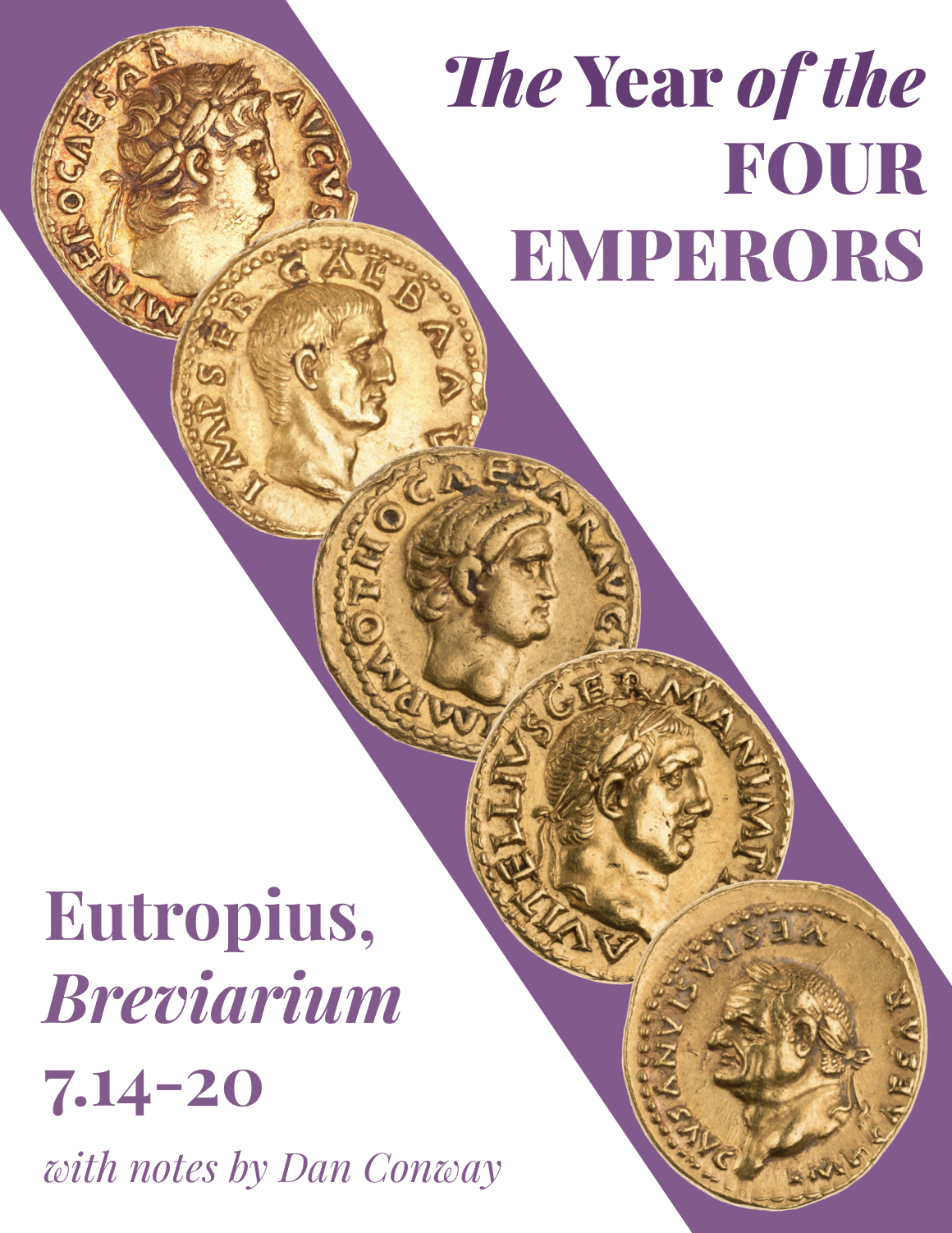June, 68 CE: Nero is dead. The events that followed would form the Year of the Four Emperors: Galba, Otho, and Vitellius would each seize power in turn and meet violent deaths after only a few months as emperor. It was Vespasian who finally brought an end to this period of chaotic instability, ushering in a new era for Rome. Eutropius's
Breviarium, written in the late 4th century, gives a brief overview of these events in a largely matter-of-fact Latin style—not without incorporating some of his own beliefs and opinions.
This reader includes several appendices, including:
- A timeline of the events mentioned by Eutropius
- Some passages from Suetonius, Tacitus, Cassius Dio, and Plutarch, covering the Great Fire of Rome, the assassination of Galba, and the burning of the Capitol by Vitellius's forces
- A story from the Jewish tradition featuring Vespasian
- A portrait of Nero recarved to look like Vespasian
- A comparison of the killings of these emperors to the killings of modern dictators
See the about page for more information about this series based on the IB companion texts.
I am releasing this reader under the Creative Commons BY-NC-ND 4.0 license, meaning that you are free to copy and redistribute the material in any medium or format with attribution and for non-commercial purposes. Find out more about this license
here.
Full version
✅ Facing vocabulary on each page
✅ A glossary of common words found in the passage
✅ Notes on linguistic, literary, historical, and cultural details
✅ Questions for comprehension, literary analysis, and discussion
✅ Appendices for additional reading
|
Macrons
|
No Macrons
|
No-vocab version (recommended for IB*)
❌ Facing vocabulary on each page
❌ A glossary of common words found in the passage
✅ Notes on linguistic, literary, historical, and cultural details
✅ Questions for comprehension, literary analysis, and discussion
✅ Appendices for additional reading
|
Macrons |
No Macrons
|
No-vocab, no-notes version
❌ Facing vocabulary on each page
❌ A glossary of common words found in the passage
❌ Notes on linguistic, literary, historical, and cultural details
✅ Questions for comprehension, literary analysis, and discussion
✅ Appendices for additional reading
|
Macrons |
No Macrons
|
Notebook version
Contains just the extract, with no vocabulary, notes, questions, or appendices.
|
Macrons |
No Macrons
|

Comments
Post a Comment